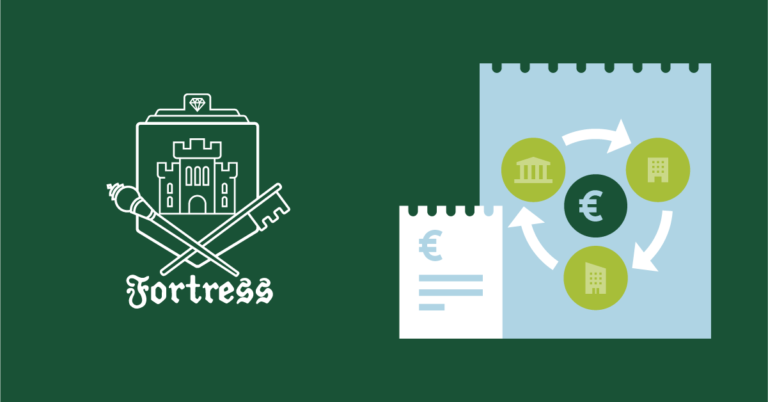When Skype was created over a decade ago by a group of Estonian tech entrepreneurs, few people anticipated the Baltic startup that followed. In fact the building blocks of an agile, efficient, and productive startup ecosystem were already in place.
And although they are the youngest members of Europe’s growing family of tech startup hubs, but the Baltic states of Lithuania, Estonia, and Latvia are maturing fast. They are also among the smallest countries, but that’s not necessarily a bad thing when startups need to test out their latest tech innovations within their local community and get results, fast.
Estonia
[quote text=”With its strategic Central Europe location, and a wealth of multilingual tech talent, Lithuania has one of the most attractive and affordable startup ecosystems in the world.” name_surname=”” description=”” left=””]
Best known for being the home of Skype, Estonia’s tech startup scene is booming. VC and angel investment activity is also gaining momentum. Earlier this year Testlio.com secured €945,000 $1m in seed funding and Bondora.com received €4.5m in venture capital funding from US investors.
Estonian startups to watch include Lingvist which has developed ‘adaptive’ language learning software that it says will significantly reduce the time it takes to learn a new language. The software tracks what the learner knows and what they don’t know and then determines what they need to learn next to fill in the gaps most efficiently. The team was assembled from prestigious backgrounds including Skype and CERN.
Taxi app firm Taxify is aiming to outdo Uber with the promise of better tech and better marketing for the country’s taxi firms and drivers. It raised seed €1.4 million in funding at the end of last year, which will be invested in the company’s goal of Eastern European market leadership, and pan European expansion
Online recruiter Jobbatical specialises in the ‘short term-but-skilled’ job market, and pairs people who are planning a career break with companies on the look out for talent for short-term hires. According to the startup founders, this is a career utopia for as many as 75% of professionals. Jobbatical secured a €260,000 seed round, led by Estonian VC SmartCap, and a team of angel investors. The platform currently hosts short-term job offers from almost 30 countries, including in Europe and the Far East.
Lithuania
[quote text=”Lithuania also has a growing investor scene. In 2014 the total investments attracted by startups were three times higher than in 2013, when investors allocated €16 million.” name_surname=”” description=”” left=”a”]
With its strategic Central Europe location, and a wealth of multilingual tech talent, Lithuania has one of the most attractive and affordable startup ecosystems in the world. This is enhanced by enviable internet connections speeds, for which the country was ranked 7th globally by the Ookla Net Index 2014, and for ease of doing business, ranked 11th by the Doing Business 2015 report, while its capital Vilnius made it into CNN’s list of Top 10 smart cities.
Annual hackathons, workshops and startup events abound in Lithuania, with the most popular including LOGIN, StartupWeekend Lithuania and SV2B. The country also boasts top quality co-working spaces, including those at StartupHighway, Sunrise Valley, and Namas Hub. A 2014 survey by public organisation Enterprise Lithuania found that startups have created over 130 new jobs in a year.
Lithuania also has a growing investor scene. In 2014 the total investments attracted by startups were three times higher than in 2013, when investors allocated €16 million.
Startups to watch include Inside Warehouse, which enables online publishers to sell content relevant products directly on site, online culinary portal Plate Culture, where diners can find and book dinners at the homes of local people in South East Asia, and Rotten Wifi, a crowdsourcing project set up to test and evaluate WiFi and 3G connections all over the world.
Latvia
Latvia’s startup scene is smaller by comparison, but expanding quickly, with numbers of new entrepreneurs joining its ecosystem growing rapidly. Flagship exits include CoBook and Ask.fm. Government support has improved, largely via help from the Latvian Guarantee Agency.
Startups to watch include travel planning tool Trip.Center whose software encompasses the entire planning process, giving users complete freedom in the way they plan their plans. Corporate training firm BranchTrack plans to disrupt the sector with its clever but very user-friendly customer simulation platform that has already been adopted by a number of top global brands.
Biotech startup Conelum uses its technology to accelerate mandatory food testing processes. A spin-off from Riga Technical University, the firm is currently working with European dairy companies and Russian partners, but has its sights set on the global market.
As an up and coming tech hub for entrepreneurs with big ideas, the Baltics have plans for the future and an eye on the global marketplace.
Read full article at Forbes.com















